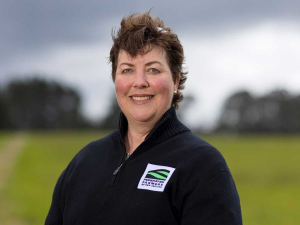Federated Farmers says changes to drinking water rules announced today are a major win for farmers, rural communities, and common sense.
Those supplying fewer than 25 people with drinking water will no longer be required to comply with onerous new rules or register the details of their water supply arrangements with Government.
It is part of new water service delivery models that will drive crucial infrastructure investment, approved by Cabinet
Local Government Minister Simeon Brown says the Government has set out the enduring components of water services delivery in New Zealand under its Local Water Done Well plan.
“This is about providing local government with the certainty it needs to deliver water services, while minimising costs on ratepayers,” Brown says.
“Councils and voters overwhelmingly rejected Labour’s expensive and divisive Three Waters reforms. This Government has swiftly repealed those policies and restored local control over water assets. The key details announced today will enable new models for financially sustainable water organisations and increased borrowing from the New Zealand Local Government Funding Agency Limited (LGFA) for water services, reducing the burden on ratepayers.”
Federated Farmers local government spokesperson Sandra Faulkner says farming families across the country will be breathing a sigh of relief.
"The drinking water rules introduced by the previous Government were a massive regulatory overreach that would have made life incredibly difficult for 80,000 rural and remote households.
"The process of registering, testing, and reporting on their water supply would have added significant cost, risk and hassle for absolutely no gain."
Federated Farmers say these rules would have also applied to milking sheds, wool sheds, or anywhere else where drinking water is supplied on a farm.
"When the regulator arrives, the goodwill leaves," Faulkner says.
"It never made any sense to try and capture thousands of very small shared domestic supplies of fewer than 25 people under these regulations.
"People would have been forced to turn the tap off, quite literally, on their staff, neighbours and communities to avoid unnecessary cost and the risk attached to penalties within these rules."
Faulkner says that rural families have been supplying safe drinking water for generations and that protections are already in place through processor quality assurance programmes.
"There is no practical or realistic way these obligations could have been enforced," Faulkner says.
"It would have just created a situation where very small suppliers were reluctant to make use of services such as information and guidance provided by Taumata Arowai."
Faulkner says these changes show the power of grassroots advocacy.
"Federated Farmers have been calling for these changes for a number of years and have worked collaboratively with local iwi and primary processors to achieve this result," Faulkner says.
"Today that detailed, comprehensive, and persistent work has paid off."



















